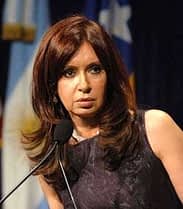EU-Mercosur Trade Agreement Talks at Risk Due to Supposed Argentinean Restrictions Against European Olive Oil Imports
Negotiations between the European Union and Mercosur seeking to develop a free trade agreement are currently in danger because of supposed Argentinean restrictions against the entrance of certain European food imports, specifically olive oil. In response to Argentinean food import restrictions implemented by Argentina’s Domestic Commerce Secretary Guillermo Moreno, the European Union has considered raising these concerns to the World Trade Organization.
Mercosur is a Regional Trade Agreement (RTA) between Argentina, Brazil, Paraguay and Uruguay founded in 1991 by the Treaty of Asunción, which was later amended and updated by the 1994 Treaty of Ouro Preto. Its purpose is to promote free trade and the fluid movement of goods, people, and currency.
 Joao Aguiar Machado, EU Deputy Director-General for External Relations said that, “the problem is that apart from their direct impact on trade, these measures erode the confidence needed to develop these negotiations.”[1] Aguiar Machado fears that, “this particular issue could contaminate the atmosphere of the trade discussions.” 1
Joao Aguiar Machado, EU Deputy Director-General for External Relations said that, “the problem is that apart from their direct impact on trade, these measures erode the confidence needed to develop these negotiations.”[1] Aguiar Machado fears that, “this particular issue could contaminate the atmosphere of the trade discussions.” 1
The Argentinean authorities, specifically current president Cristina Kirchner and her ministers, have denied the existence of any such restrictions against European products and counter that the Mercosur-EU trade talks are not the appropriate forum to address such a bilateral issue.
In response, Aguiar Machado notes that while these restrictions may not exist on paper, they are very real and evidenced by Argentinean, “internal communication… talking about impairing devices. Containers are blocked in ports and there is no way to deny this.“1

This back and forth is not the only impediment to the EU-Mercosur talks, however. France leads another dozen European countries in a protest of this potential free trade agreement, arguing that the lower costs of production from cheap labor in South America would negatively affect European olive oil producers who already face financial crises and prices that continue to plummet.
The breakdown of these talks could potentially be disastrous for both sides, as EU-Mercosur trade represents almost as much as EU trade with the whole of Latin America taken together. Additionally, the EU is Mercosur’s primary market for agricultural exports, accounting for some 19.8% of total EU agricultural imports in 2009.[2]








